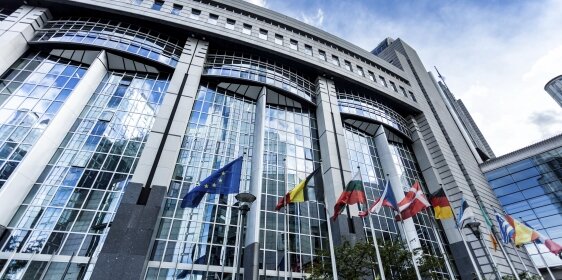
- Olli Rehn predicts rising unemployment, missed budget deficit targets and economic growth three times less than Rajoy's estimates
- He does see growth in 2014 if Spain continues with austerity policies
- EU Commission not able to offer Spain any ‘good ideas’ to help
Although Spain’s president of the government, Mariano Rajoy, has reassured the rest of Europe, and the world, that his country will recover from the crisis and start to see economic growth from 2014, the recent autumn forecast from Brussels paints a completely different picture.
At the beginning of November, Olli Rehn, European Union Economic and Monetary Affairs Commissioner, addressed a conference in which he discussed and outlined his economic forecast for the euro zone group countries and the European Union as a whole.
Rehn’s predictions for Spain, in particular, were extremely harsh and did not bear any similarity to those of the Spanish President.
Unemployment
According to Rehn, unemployment will rise even higher to a staggering 26.6% in 2013 and it will remain above the 26% mark for the following year.
Rajoy has conceded that unemployment is one of the main problems facing Spain, yet he has vowed to tackle the situation head on and to make it a priority to do so.
Economic growth
The European Commission has predicted economic growth for Spain in 2014, the same as Spain’s government’s calculations, although how much growth is uncertain.
Rehn only sees growth in two years time if Madrid takes additional steps – the bailout it is being urged to accept – and if the government sticks to its current (very unpopular) policies for the economy.
The figures are slightly uncertain, however, because the EU Economic Commissioner has estimated that Spain’s economy will contract 1.4% as opposed to the 0.5% as predicted by Rajoy.
The Government’s strict austerity measures that have been put in place, including budget cuts and political reforms, although they are working, are preventing economic growth at the moment and causing unemployment to rise even further.
Budget deficit
Perhaps the worst figures are those for the budget deficit. Spain will miss the targets set out by Brussels which were agreed when discussing conditions for the loan to rescue Spain’s banks.
| year | agreed target | predicted target |
|---|---|---|
| 2012 | 6.3% | 8% |
| 2013 | 4.5% | 6% |
| 2014 | 2.8% | 6.4% |
Together with trying to drastically reduce the high rate of unemployment, tackling the budget deficit is another of Rajoy’s immediate concerns and priorities.
Although the country’s spending must be cut, the Spanish President has made a guarantee that he will not increase taxes, a recent measure that caused mass street protests and a second general strike in 2012 on 14th November.
Without ideas
Nevertheless, although the figures for the next two years for Spain’s economy are not the best, the worst part is the lack of ideas and measures from the European Commission to bring the economy back to life. The best it can offer at the moment is the ‘hope’ that Spain’s growth in exports, VAT hike and budget cuts will help to stabilise the situation, bring down unemployment and reverse the negative growth. Rehn’s only comment was that the EU Commission will continue to study the impact of the austerity measures and spending cuts, which totalled 6% of GDP, in the future.
Sources: www.20minutos.es, , www.europeanvoice.com, www.theglobeandmail.com, www.maspublico.com
Categories:












